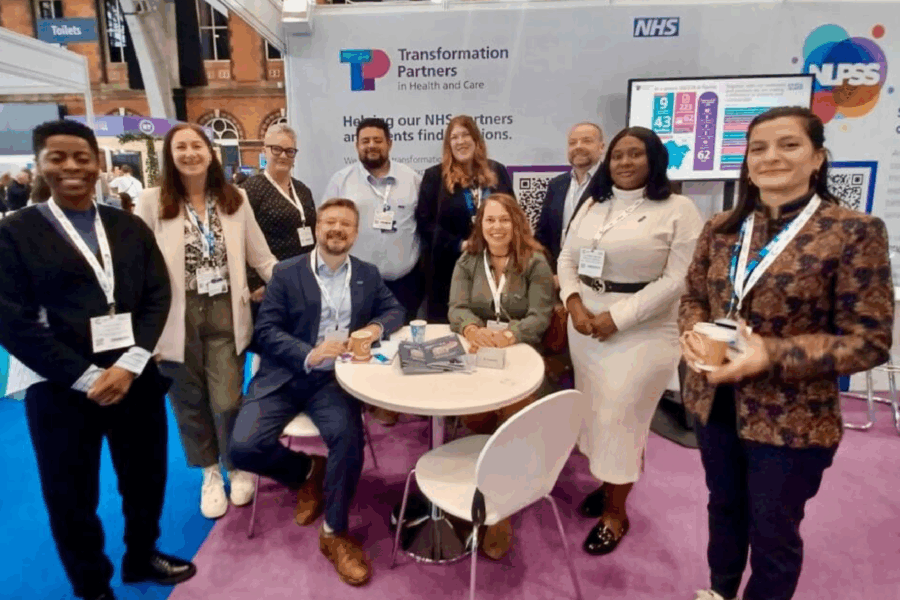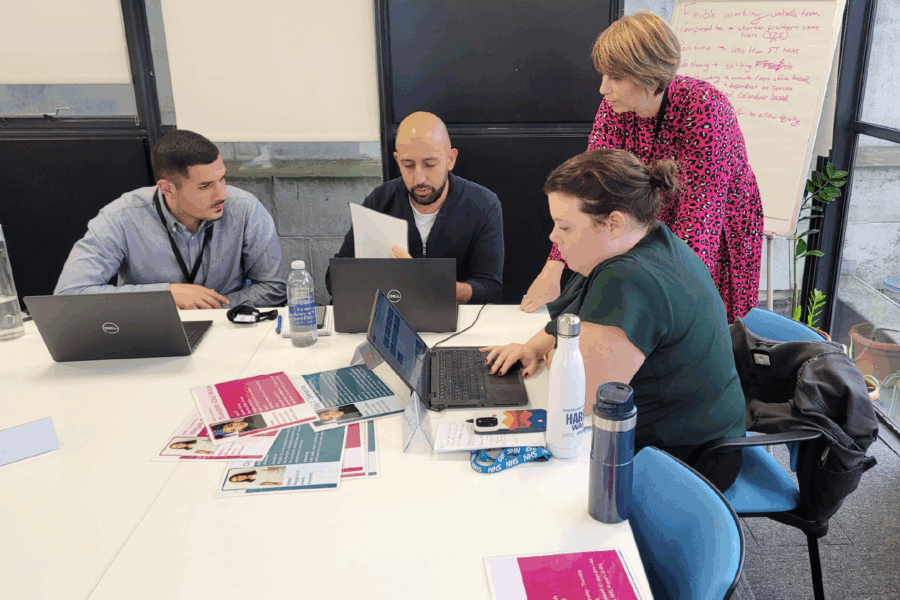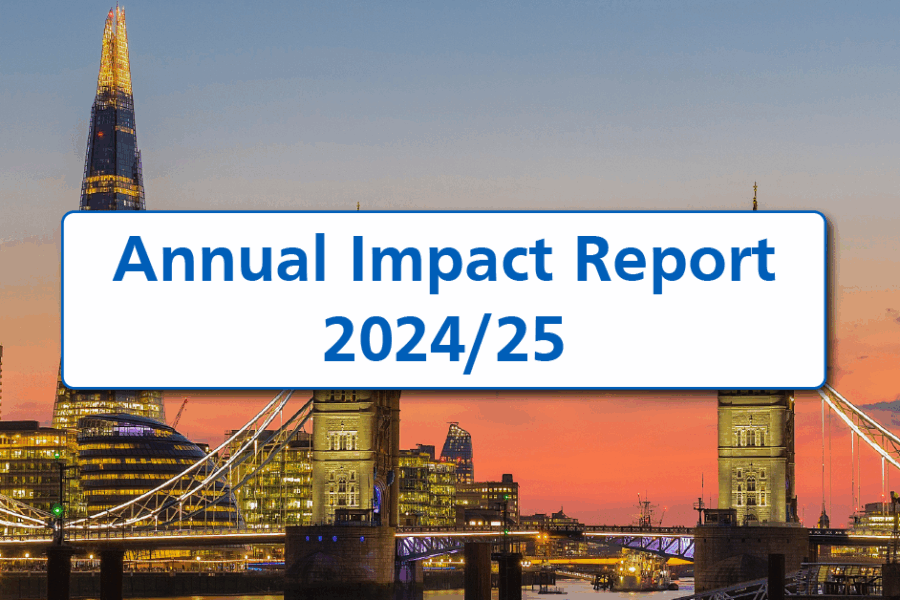From treating to preventing sickness
The shift from treating to preventing sickness requires tackling the underlying causes of ill health and promoting healthier lifestyles. TPHC has been working with clients and partners across London and other regions to deliver preventative programmes and initiatives. This includes the work of our pan-London Partnerships programmes, which are run on behalf of regional organisations, and bespoke work delivered by our Consultancy team for our clients.
Across the board, this work supports the health and care needs of diverse populations and communities, helping them to live longer, healthier lives. Learning and insights from our teams are regularly shared regionally and beyond, to support delivery of best practice on effective preventative approaches.

Evaluation of the London Covid Vaccination Outreach Programme
NHS England – London commissioned TPHC to evaluate its autumn/winter 2024/25 outreach programme. This programme looked to address persistent disparities in COVID-19 vaccine uptake and improve equity. The evaluation focused on Black African, Black Caribbean, and Bangladeshi communities in six key London boroughs, supported by a pan-London overview.
Our comprehensive assessment measured how effective the programme was at increasing vaccine uptake and trust in the vaccine. We provided data-driven insights and recommendations to inform future vaccination efforts.
Key outcomes included:
- shifting vaccine perceptions: the programme demonstrated a strong impact, with 86% of previously hesitant people shifting to a ‘very likely’ stance post-engagement. Key drivers included empathetic peer champions and offering vaccines in familiar, accessible settings
- strategic recommendations: we emphasised the value of trusted, community-led initiatives such as breakfast club pop-ups and improved access through mobile clinics, which collectively delivered over 18,000 vaccinations through access and inequalities-funded initiatives
- rich community insights: results from over 1,000 public surveys and engagement with 24 organisations highlighted mistrust, often linked to local misinformation, as a major barrier to vaccine uptake and underscored the importance of culturally tailored messaging through trusted community figures.
Better for the Londoners
NHS England London and ICBs are currently developing action plans for how to implement the recommendations. Our evaluation findings provide the NHS in London with critical insights to shape future vaccination outreach and build greater trust within London’s diverse communities, improving equity and protecting Londoners.
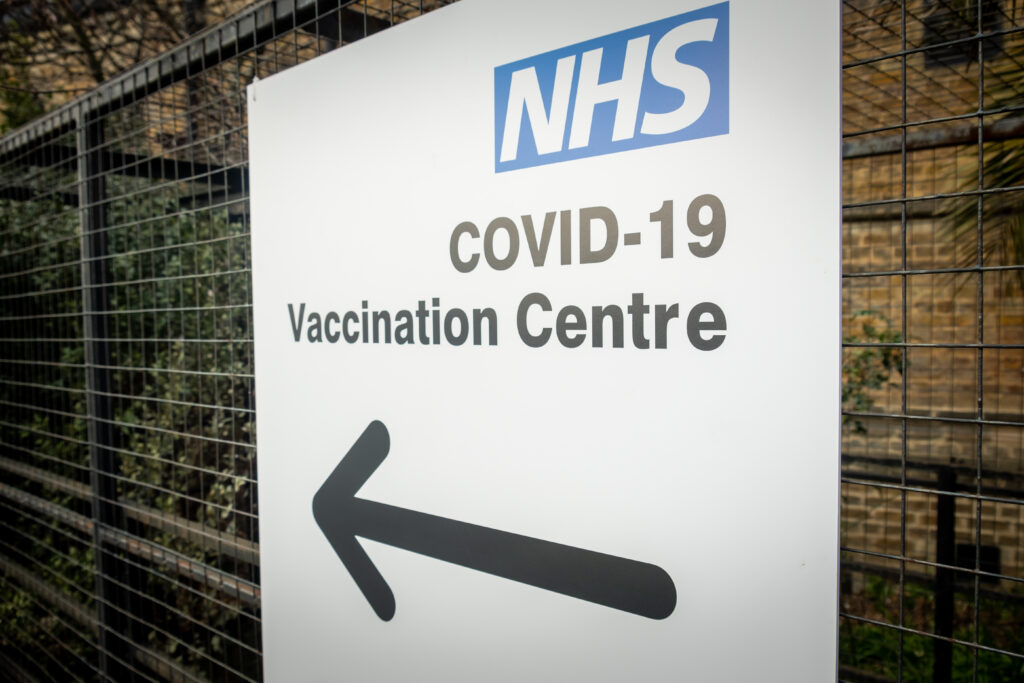
Integrating physical activity into NHS Talking Therapies with Sport England

We are supporting Sport England to explore how physical activity can best be integrated into NHS Talking Therapies. The initiative is a key element of Sport England’s ten-year plan, “Uniting the Movement”, which links health services more closely with sport and physical activity.
First, we worked with Sport England on a study involving input from nearly 400 people, including Talking Therapies staff, commissioners, and people using services. Over 90% said physical activity is important for people with common mental health conditions, like anxiety and depression, and most of them strongly supported NHS Talking Therapies doing more to increase physical activity levels.
This led to a recommendation to better embed physical activity into these services in the report: How can physical activity be better utilised within NHS Talking Therapies?
As a result, a national strategy and shared plan were developed by Sport England. A key recommendation in the report was to establish multiple Trailblazer sites across England to explore what works best for service users and services and demonstrate cost-effectiveness.
Better for patients
We have supported Sport England to recruit three Trailblazer sites, each with differing geographies and populations. Each site provides a direct link into local communities, with physical activity in NHS Talking Therapies supporting the engagement and outcomes of underserved communities.
As part of our support to Sport England, we are now developing detailed plans for recruiting, monitoring, and evaluating these sites. The goal is to ensure that physical activity, with its many benefits for prevention, plays a meaningful and sustainable role in mental health support within the NHS nationwide.
Nationally, the NHS recognises that embedding physical activity into lifelong healthcare will benefit patients, NHS staff and the wider population, in line with Sport England’s findings.
Championing better mental health support for young Londoners
TPHC’s Partnerships team leads the Mental Health Transformation Programme to drive forward impactful change across London’s mental health system for children and young people in 2024/25.
Addressing waiting times for children and young people’s mental health services
The Children and Young People Mental Health Waiting Times project analysed waiting times through a comprehensive baseline analysis and meaningful youth engagement.
- Findings revealed the urgent need for whole-pathway transformation, improved demand and capacity planning, and a sharper focus on inequalities — especially for young people from globalised majority communities and those waiting for neurodevelopmental support.
- We established a Youth Advisory Board of over 20 young Londoners aged 16 to 25, in partnership with Partnership for Young London, to shape recommendations for change. This included youth-led interviews with senior leaders across the health and care space.
- We created a resource hub to share the learning from the evidence review, data diagnostics, and input from young people. It also has case studies and webinars on good practice in reducing waiting lists, making changes to pathways to improve flow within services, and applying productivity and process measures to improve waits. This work aligns with the NHS waiting times guidance, providing practice examples to transform services.
Meaningful engagement with young people

We supported work to implement the learning from the Listening Project, which asked 114 young people from Black, Asian and Latin American communities about their mental health, what affects it and their experience of mental health support in London.
Delivered in collaboration with partners including Black Thrive and Taraki, the project uncovered structural inequalities and stigma that impact access to care, as well as recommendations for how to do things better.
Better for the NHS
Integrated care board leaders and mental health services have engaged directly with the Listening Project and have used it to inform their thinking and planning around service transformation in their localities.
Championing a citywide mental health response with Thrive LDN
Thrive LDN is a citywide public mental health partnership to ensure all Londoners have an equal opportunity for good mental health and wellbeing. TPHC hosts the core programme team, who work with a coalition of partners towards the shared mission of ensuring everyone living or working in London is treated fairly and can live a happy and healthy life.

Promoting individual and community wellbeing
Working with regional partners, including Good Thinking, the team coordinated the fourth Great Mental Health Day (GMHD), a London-wide initiative to get Londoners talking about their mental health and wellbeing.
For 2025, the theme of small actions for others was chosen for Great Mental Health Day for Londoners to celebrate and learn from organisations and community leaders who are devoting energy and compassion to others. Around 150 organisations across London boroughs took part and held free events to bring people together to share stories, experiences and explore ways to support individual and community wellbeing. The team produced content, resources and toolkits to help individuals and organisations to get involved.
Activity on the day included:
- 45+ in-person events in 17 London boroughs
- 12,000+ visits to the Thrive LDN Great Mental Health Day online resources
- a BBC Radio London interview with Lynette Charles (CEO, Mind in Haringey).
Great Mental Health Day 2025 received a strong endorsement and message from the Mayor of London, Sir Sadiq Khan:
“I am proud to support Thrive LDN’s Great Mental Health Day. It’s vital that we continue breaking down the stigma surrounding mental health, and this range of free events offers a great opportunity to bring people together and find out more about the support and services that are available across the capital.’’
Mental wellbeing support for Hongkongers living in London
In 2024/25, Thrive LDN worked with a small number of Hong Kong community organisations and partners to co-develop a series of policy recommendations to support the mental health and wellbeing of Hongkongers living in London.
This work was commissioned by the Greater London Authority’s Hong Kong Welcome Programme, supported by the Ministry of Housing, Communities and Local Government. It focused on the challenges Hongkongers were facing and what policymakers and those in a position to create changes in the healthcare system could do to unblock these issues.
The report, Supporting the mental health and wellbeing of Hongkongers in London, was published on the Thrive LDN website to share learning and solutions.
Better for migrant communities in London
The report noted the importance of, among other things, addressing historical and ongoing trauma, isolation, transition, identity and the importance of cultural awareness and humility.
Understanding these is of significance not just for Hongkongers but also for other displaced communities and those facing shock or crisis, where their experience mirrors that of the newly arrived Hongkongers.
These findings have supported Thrive LDN’s community resilience and crisis response work as a whole.
The UK’s first Population Mental Health Consortium
Through a partnership between King’s College London and Thrive LDN, the first nationwide Population Mental Health Consortium launched in September 2024. The consortium aims to connect stakeholders across academia, public health, local government and voluntary organisations, to create new opportunities for population-based improvements in mental health across the UK.
The Consortium has received over £7million of funding from UK Research and Innovation, and includes Thrive LDN, King’s College London, University College London, Middlesex University, Swansea University, Ulster University, University of Manchester, Birmingham Women’s and Children’s NHS, and Applied Research Collaboration West Midlands.
Better for the Londoners
The consortium has secured significant investment into London’s mental health landscape, providing funding and securing commitment from multi-sector agencies and stakeholders. Focus areas include children and young people, suicide and self-harm prevention and multiple long-term conditions. An interdisciplinary approach is being taken through the consortium to enable identification, prioritisation and evaluation of public health policy interventions locally, regionally, and nationally. This is underpinned by novel, rigorous research methods, capacity building, and close involvement with the public and communities.
Supporting Londoners’ mental wellbeing with Good Thinking
TPHC hosts and supports the Good Thinking platform, which provides free, 24/7 access to a wide range of NHS-approved mental health and wellbeing resources for anyone living, working or studying in London. These include workbooks, how-to guides, toolkits, apps, podcasts, webinars, and training around four key mental health concerns: stress, anxiety, low mood, and sleep problems.

In 2024/25, the programme team led several initiatives to raise awareness of the Good Thinking platform and boost engagement with external audiences.
Engagement with specific communities to co-produce tailored mental health content included:
- working with LGBT+ organisations across London to develop content around the LGBT+ community and mental health challenges. This included a collaboration with the Speakers Collective for Pride Month 2024 to share personal stories and practical tips on looking after your mental health, from members of the LGBTQ+ community
- working with Digital Health Ambassadors through Partnership for Young London to develop a podcast for Children’s Mental Health Week (3-9 February) on the theme of self-awareness
- developing content on student mental health, and signposting to support, including Good Thinking’s bespoke digital student hub, in collaboration with Brunel, Greenwich and Middlesex Universities, to support University Mental Health Day on 13 March .
Activity also marked regional and national mental health awareness events:
- a Good Thinking webinar was attended by 100+ stakeholders in support of Great Mental Health Day on 31 January 2025. It focused on resources produced by Good Thinking and how they can support mental health and wellbeing in London.
Targeted London campaign to raise awareness of mental health resources
In July 2024, Good Thinking ran a targeted online search campaign to reach key audiences across London. The objectives were to:
- raise awareness of Good Thinking and the mental health support resources available across London;
- drive increased traffic towards the Good Thinking website
- evaluate content efficacy to identify areas for development.
The first phase of the campaign ran from July 2024 to March 2025; key outcomes were:
- nearly 80,000 new users accessed the Good Thinking website during the period, generating 2.2 million impressions
- both the average click through rate (CTR) and session duration time were above our average benchmarking rates, with CTR more than double our benchmark
- average engagement rate was 58%, just above the top end of our 55-58% benchmark, demonstrating strong user engagement with the content
- the four pillars of Good Thinking (anxiety, stress, low mood and sleep) were the top four performing webpages through the campaign – with anxiety accounting for 43% of traffic. This indicates that Londoners are seeking information on common mental health conditions, and the content and resources provided by Good Thinking are both relevant and engaging.
In 12 months (1 April 2024-31 March 2025), the campaign generated almost 75% of Good Thinking’s new users. Following the campaign, the number of returning users has started to increase, indicating that Londoners are finding the range of resources provided through the Good Thinking platform beneficial.
Making health and wellbeing apps accessible to Londoners
The Good Thinking service also makes health and wellbeing apps available for free to Londoners. In January 2025, a new app, Pathway through pain, was launched, signifying a new direction in terms of drawing a link between the impact of chronic musculoskeletal pain with mental health and wellbeing.
To date, 86% of licenses have been allocated to users in London.
Better for Londoners with chronic pain
Pathway through Pain is providing users with a structured pain management programme delivered by experts to help reduce the impact of pain. Londoners with chronic pain are being supported to develop skills and knowledge to effectively manage their pain in the long term.
Feedback from a Pathway through Pain App user:
‘‘I am so glad to have been able to do this programme. It has helped me to really consider what I can do to manage my pain. I am also a lot more aware of pain itself and the impact it has… This program is thorough and deals with different aspects of pain. It was very useful to me. I now want to be able to continue with the tools with the hope it will continue to benefit me and also my relationships and work.’’
Fast-Track Cities London mission for ending HIV epidemic
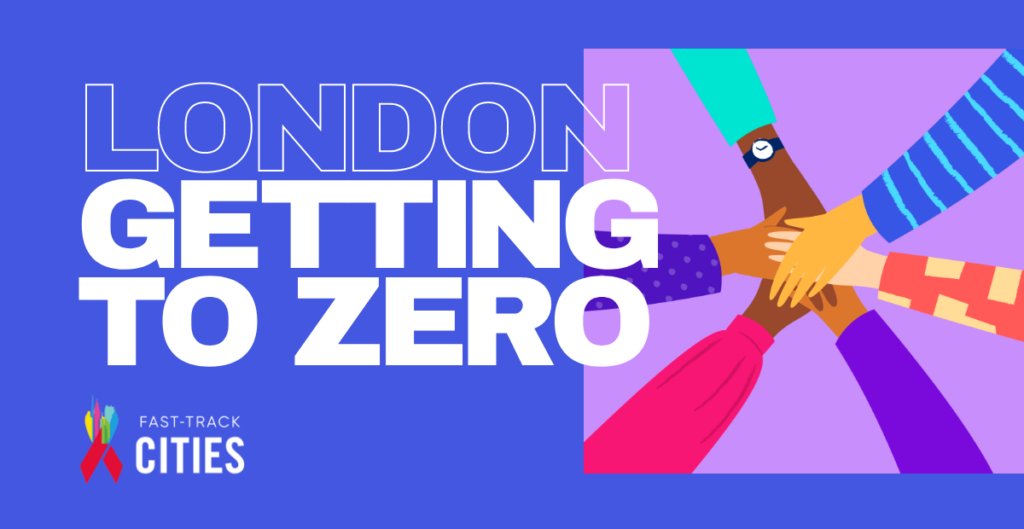
Fast-Track Cities is a global initiative to end the HIV epidemic by 2030. London joined the global Fast-Track Cities Initiative in January 2018. The central programme team is based in TPHC’s Partnerships team. In 2024/25, Fast-Track Cities London made significant strides toward its goal of ending new HIV transmissions, preventing avoidable deaths, and eliminating stigma by 2030. Through a combination of community-driven programmes, healthcare innovations, and policy leadership, the initiative demonstrated measurable impact across the capital.
Expanded HIV testing and care through primary care
We convene the GP Champions Group through a community of practice, connecting members to the wider HIV clinical forum and providers in the voluntary, community, faith and social enterprise sector. We funded GP champions in north east London who are working to establish proactive management in primary care for people living with HIV. Their work saw:
- a 31% increase in HIV testing across north east London, up from 24,289 tests in 2023 to 31,858 in 2024
- an offer of HIV testing to all patients registering with a GP practice.
Integrated peer support in every London HIV clinic
Peer-led social prescribers are being integrated within the patient pathway in HIV clinics and multidisciplinary teams across London to improve patient engagement and retention in care. They provided personalised care, support and signposting to improve the quality of life of 482 people living with HIV.
Empowering people living with HIV
“Learning to Live Well with HIV” courses, commissioned by Fast-Track Cities London, supported 35 people who were newly diagnosed with HIV. Surveys indicated improvements across all 10 quality-of-life indicators. These types of initiatives are also known to increase engagement in treatment and care.
Addressing the social determinants of health
Programmes implemented as part of the Getting to Zero collaborative are providing immigration, housing, welfare benefits advice, mental health and chemsex support, acknowledging the broader social factors affecting health outcomes.
Tackling stigma and discrimination in the capital
On World AIDS Day, the Mayor of London became a founding member of the HIV Confident charter, a workplace anti-stigma initiative led by the National AIDS Trust and Positively UK, developed in partnership with Fast-Track Cities partners and funded by the London leadership group for the first three years.
Global engagement in HIV
Fast-Track Cities London is committed to ending HIV. The team attended the Fast Track Cities 2024 conference in Paris and has been involved in several initiatives to support global efforts. This includes working in collaboration with Amsterdam, being a part of the European team working on a network response to HIV and hosting the UK and Ireland network.
Better for Londoners with HIV
Fast-Track Cities is preventing avoidable deaths. Our work on reducing stigma and improving support for people with HIV means people are more likely to come forward for treatment and keep taking it, improving their health and wellbeing and reducing the risk of transmission. Offering HIV testing as a routine part of healthcare enables HIV infections to be identified early, leading to faster treatment and better outcomes.
Better for all Londoners
Fast-Track Cities is reducing the risk of onward HIV transmission by ensuring people living with HIV are supported to better engage in treatment and care, and that PrEP is more easily accessible to those who need it.
Better for the NHS
Fast-Track Cities is reducing HIV transmission and illness in London, reducing the pressure on HIV services and team members.
Convening community-led prevention in London
The London Personalised Care programme, established in 2017, evolved last year into the Community-led Prevention programme. Its aims throughout have included supporting Londoners with practical, social and emotional needs which are impacting their health to access local activities, groups, and services which can help them feel better.
Between 2017 and 2024, the team supported the growth of London’s social prescribing workforce to more than 500 social prescribing link workers, health and wellbeing coaches and care coordinators in London’s primary care networks.

The team also worked with voluntary and community organisations and other partners in boroughs to co-design a shared investment Community Chest fund. This allocated £500,000+ of funding to small local voluntary, community, faith and social enterprise organisations to deliver activities to improve residents’ wellbeing, targeting unmet needs identified through social prescribing services.
In 2024/25, the focus moved to supporting London’s health and care systems to develop more proactive, preventative and community-centred approaches to improve the health and wellbeing of those most impacted by health inequity.
We supported:
- NHS trusts and integrated care boards to embed personalised interventions and community-led approaches into specialist pathways, largely in cardiac care and services for children and young people
- integrated care boards to make social welfare legal advice available in healthcare settings such as hospitals. Many more patients can now easily access support for issues such as housing, debt, and unemployment, which can have a big impact on people’s health
- integrated care boards to embed key enablers of prevention – such as co-producing their plans with communities, workforce development, and building community partnerships – in their day-to-day ways of working.
We drew on our extensive knowledge and experience to publish numerous toolkits and guidance to help organisations create change. These were:
- a Community Chest Toolkit to help local partners create community funding mechanisms that offer grants to approved grassroots initiatives to meet local needs
- a Community-centred Approaches Guide with practical insights for neighbourhood teams on making prevention and community voice a core part of service design and delivery
- a Secondary Care Prevention Toolkit for trust and system leaders. This helps them explore how community-led models, such as social prescribing, can be part of secondary and acute care pathways, contributing to whole-system transformation
- a Social Prescribing Evaluation Toolkit that gives local teams the tools to measure and demonstrate the impact of prevention work, further supporting informed decision-making and long-term investment in community-led approaches.
Better for Londoners
These approaches support action by communities to identify and remedy health and wellbeing issues for local people, using their in-depth knowledge and understanding of what local people need.
Preventing sickness and giving people the knowledge and support they need to take more control of their health will improve health and wellbeing for individuals and communities
Better for the NHS
We have passed on our knowledge from many years of running the personalised care programme to enable health and other organisations in London to carry on the good work. From September 2024, we initiated a transition phase to embed our work into the system, for NHS England and integrated care boards to take forward and continue delivering sustainably.
Curious to see how we can make a difference?
Interested in hearing more about how we have helped tackle health inequalities? Contact us for an informal chat.
email us at:rf-tr.tphc-communication@nhs.net
The London Homeless Health Partnership
The London Homeless Health Partnership was established in 2021 to improve healthcare access, service coordination, and health outcomes for people experiencing homelessness. It was grounded in participation, integration, and innovation, and it drove significant improvements to healthcare for people experiencing homelessness.
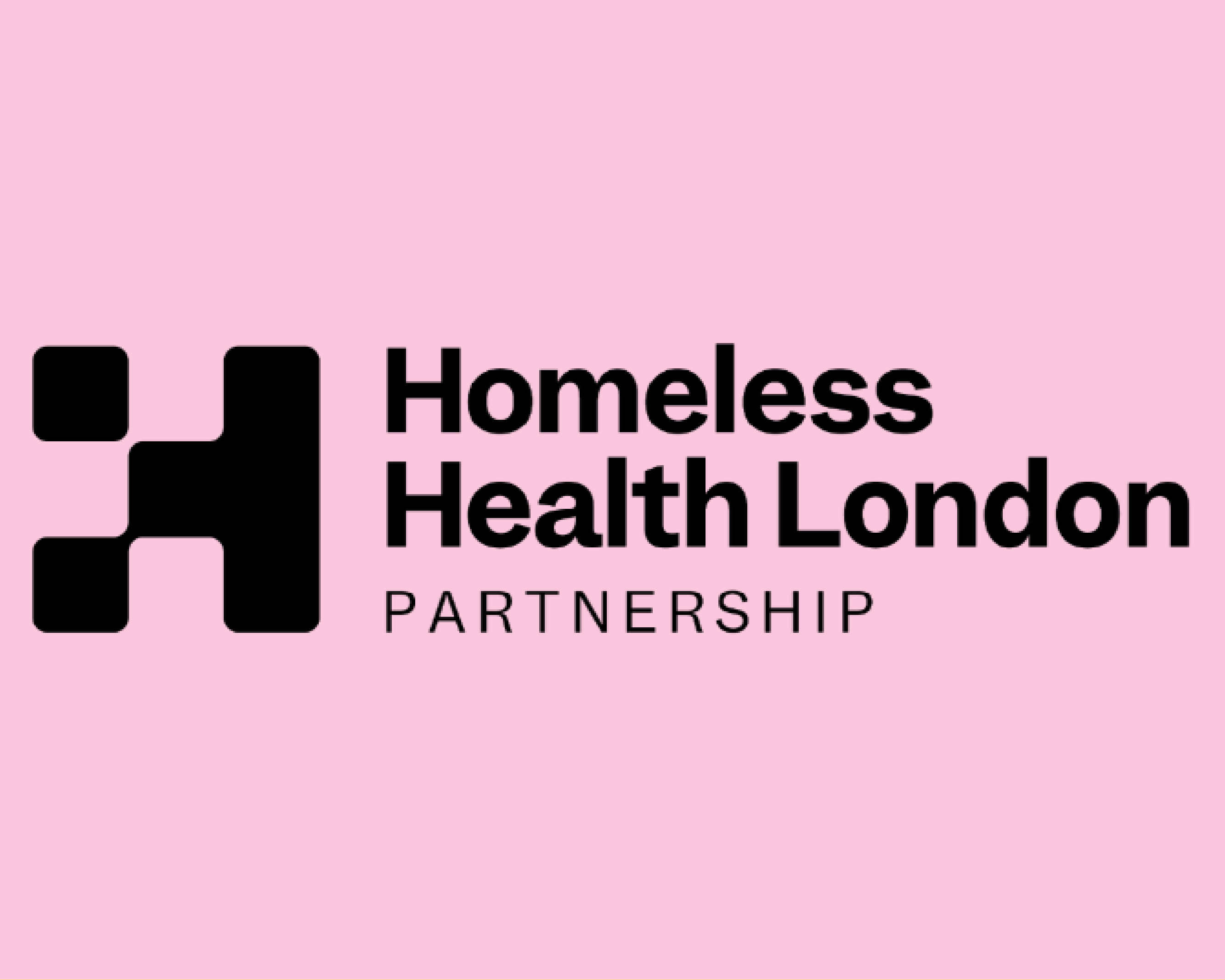
Improving healthcare access and experience for people experiencing homelessness
In 2024/25, the London Homeless Health and Primary Care Steering Group published Transforming Primary Care for Homeless and Inclusion Health. This report, shaped by regional workshops with partners from the NHS, local authorities, and the voluntary sector, outlined ten priority areas for improving primary care for people experiencing homelessness. It has been shared with all of London’s integrated care systems. It has resulted in:
- a dedicated workforce task and finish group, convened and managed by NCL Integrated Care System (ICS) and our programme team, produced a comprehensive report on the workforce working with inclusion health groups. It identified challenges and made system-wide recommendations for enhancing training, support, and collaboration across sectors
- extensive engagement led by our team with multidisciplinary teams and service users to gather insights and principles for a homeless health section of the Universal Care Plan, a digital tool for Londoners to share their care and support wishes with all professionals providing their care. Design of the homeless health template is being taken forward by a 50-member working group and a dedicated focus group of experts from frontline services and people with lived experience of homelessness.
The programme also played a key role in supporting the national evaluation of out of hospital care models for people experiencing homelessness, delivered by King’s Health Partners. The London Homeless Health Partnership delivered the out of hospital programme in London between 2022 and 2024, when across the country, different care models were invested in and tested with national funding. The evaluation report can be accessed here.
Embedding lived experience into programme delivery
Lived experience was central to all homeless health activities in London in 2024/25, led by homelessness charity, Groundswell, who were commissioned to deliver this function. Our team hosted and promoted masterclasses and workshops on safeguarding people experiencing homelessness and implementing NICE guidelines with meaningful involvement of experts by experience. Groundswell also developed a toolkit to embed lived experience in service design, training, and participation across London. Funding was secured for experts by experience so they can continue to shape homeless health priorities, including safeguarding, workforce development, and the Universal Care Plan.
Integrated care systems, particularly North East London and South East London, worked together to develop their homeless health strategies. Training in co-production was co-developed with experts by experience and Groundswell and delivered with volunteers.
We made recommendations to integrated care boards to increase the visibility of homelessness in existing datasets, collaborate across regions, and train frontline staff. These recommendations were taken forward by the London School of Economics, University College London, and the London integrated care boards.
Better for people experiencing homelessness in London
Recommendations for improving primary care, better training and support for the inclusion health workforce, improved data, the development of system-wide homeless health strategies, and a homeless health template for the Universal Care Plan will all improve healthcare delivery and play a part in some of London’s most vulnerable residents receiving more equitable healthcare.
The regional programme concluded in March 2025 when its functions transitioned to London’s integrated care systems and NHS England – London.
The programme team is continuing to deliver a pilot to improve access to Hepatitis C testing and treatment on behalf of NHS England. Read more about this work in the Hospital to Community section of this report.
Pan-London Co-occurring Conditions Programme
TPHC hosts and runs the pan-London Co-occurring Conditions Programme, overseen by the Office for Health Improvement and Disparities – London’s Alcohol, Drugs, and Tobacco programme. The project focuses on improving coordination between substance use and mental health services for people experiencing homelessness in London.
Raising the profile and visibility of the issues across London
In 2024/25, we continued to engage with organisations across London on behalf of the programme to raise awareness and inspire action. More than 80 strategic leaders from substance use, mental health, homelessness and primary care attended the London Co-occurring Conditions Summit at City Hall in February 2025. The summit identified priority areas focusing on leadership, workforce, stigma and integrated commissioning, which have been taken to the London Task and Finish Group for Co-occurring Conditions. A set of key principles will be published in 2025/26.
Addressing inequity in mental health and homelessness outreach services in London boroughs
Working with members of the London Mental Health and Homelessness Advisory Group, we mapped access to mental health and homelessness outreach services in London. This research enabled the programme to analyse gaps and provide targeted support to boroughs with no provision. We:
- developed a new service model in North Central London, creating consistent access to mental health outreach for people experiencing rough sleeping
- secured funding for the continuation of the STEP project (mental health outreach for people experiencing multiple disadvantages) and for the continuation of the Lewisham Dual Diagnosis Health Outreach Practitioner role
- led work with the London borough of Lambeth to develop and evaluate a new Dual Diagnosis Health Outreach role, which has now been funded for another year.
Better for Londoners with co-occurring conditions
Londoners with co-occurring conditions are some of the most marginalised people in the capital. Our work helped to focus attention on their needs and to support improvements to their care, including targeted support and provision by London boroughs.
Sharing learning and resources
Building on our work in 2023 with North Central London integrated care system to establish a community of practice, in 2024/25, we replicated this model for the four other integrated care systems in London, reaching over 400 participants. This is enabling the sharing of knowledge, resources and contacts across London.
To date, nearly 2,600 people have completed a trauma informed practitioner e-learning course, which we developed in partnership with the Office for Health Improvement and Disparities (OHID). The course supports cross-sector professionals to better meet the needs of people facing homelessness who have co-occurring needs.
The team also shared learning as guests on a podcast on co-occurring conditions by the National Expert Citizens Group.
Research and communications
We worked with 186 frontline practitioners to gather views about working with autistic people who are experiencing homelessness. The findings were compiled into a report, “Neurodiversity is an afterthought at the moment”. Key insights included:
- 95% of participants felt that better training and resources are needed for services working with autistic people experiencing homelessness
- 81% of participants were not aware of any specialist services in their area that would work with autistic people experiencing homelessness
- only 14% of all participants felt that mainstream services in their area meet the needs of autistic people experiencing homelessness.
We have convened an advisory group to develop a bespoke training programme on working with people experiencing homelessness and autism to address the findings.
Better for Londoners and the NHS
Treating Londoners with co-occurring conditions effectively is likely to reduce their burden of ill-health, improving their quality of life and, potentially, their life expectancy and reducing pressures on health and care services.

